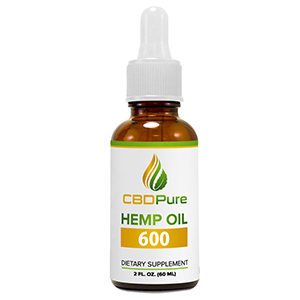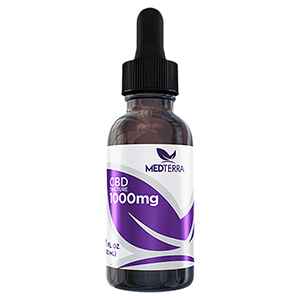 Expert's opinion
Expert's opinion
The article is a subjective view on this topic written by writers specializing in medical writing.
It may reflect on a personal journey surrounding struggles with an illness or medical condition, involve product comparisons, diet considerations, or other health-related opinions.
Although the view is entirely that of the writer, it is based on academic experiences and scientific research they have conducted; it is fact-checked by a team of degreed medical experts, and validated by sources attached to the article.
The numbers in parenthesis (1,2,3) will take you to clickable links to related scientific papers.
Best CBD Oil For Lupus: The Most Trustworthy Brands In 2024
All articles are produced independently. When you click our links for purchasing products, we earn an affiliate commission. Learn more about how we earn revenue by reading our advertise disclaimer.
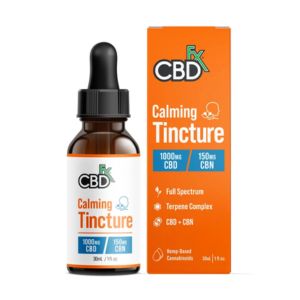
CBDFx
- Third-party lab-tested.
- U.S. Hemp Authority-certified.
- Non-GMO.
25% Off Coupon: HEALTHCANAL
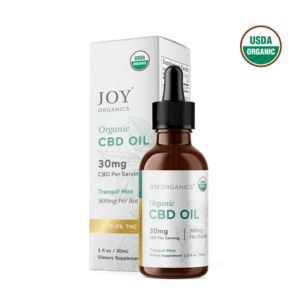
Joy Organics
- Test analysis found on the product page
- Wholesale pricing for chronic pain patients
- Choose from three concentrations of CBD
25% Off Coupon: HEALTHCANAL
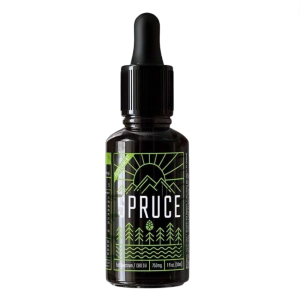
Spruce CBD
- Full-spectrum CBD (free from THC)
- Third-party lab tested for purity/potency
- Save 15% with a monthly subscription
15% Off Coupon: HEALTHCANAL
Lupus is an autoimmune disease that takes several forms, the most common of which is systemic lupus erythematosus (SLE). This condition is characterized by widespread inflammation and organ damage that occurs when the immune system attacks its own tissues. There is no cure for lupus, but there are treatment options like CBD oils for lupus to help mitigate symptoms and prevent flare-ups and progression of the disease.
Symptoms of lupus range from case to case but can become severe, even life-threatening. With early diagnosis and symptom management, the damaging effects of lupus can be limited but long-term complications are still possible. Proper treatment of lupus is incredibly important when it comes to maintaining function and quality of life.
Read on to learn more about lupus including what it is, what causes it, and what lupus symptoms look like. We’ll also talk about potential therapies including alternative treatments like CBD oil for lupus.
Best CBD For Lupus In (May. 2024)
- CBD Fx – Editor’s Choice
- Joy Organic – Best THC Free
- Spruce CBD – Best Quality
- CBD Pure – Best Guarantee
- Medterra – Best Variety
- PlusCBD – Best Flavor
CBD Oil For Lupus
Though roughly half of lupus patients use alternative therapies, there are few clinical studies to evaluate their safety, efficacy, or effectiveness. Because the number of effective pharmaceutical agents for treating lupus and reducing co-morbidities is limited (and due to the high risk for side effects), however, further research into alternative options may be warranted.
With the rising popularity of CBD oils for the treatment[1] of everything from pain and inflammation to post-traumatic stress disorder and anxiety, some lupus patients are turning to CBD. Read on to learn more and to see our top picks for the best CBD oil that may help lupus patients.
Best CBD Oil For Lupus To Buy On The Market In 2024
CBDFx
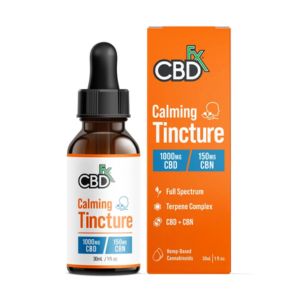
25% Off Coupon: HEALTHCANAL
You want to know that the CBD you’re using has been tested for quality, but it’s also a good idea to know where it comes from. With CBDfx, you’ll be getting high-quality, USA-grown hemp CBD.
- USA industrial hemp is grown in Kentucky
- Wide variety of oils, edibles, and topicals
- Third-party lab tested for purity and safety
- Some may be overwhelmed by the large variety
At CBDfx, you can choose from a wide variety of products including CBD oil tinctures, capsules, gummies, edibles, and topicals. All CBDfx oil tinctures are 100% vegan and GMO-free, made with CO2-extracted cannabidiol and coconut-derived MCT oil. In topicals, choose from cooling formulas, ultra-moisturizing balms, and calming creams.
All CBDfx products use industrial hemp sourced from Kentucky. Their hemp is free from pesticides and everything is lab-tested for quality and safety.
Joy Organics
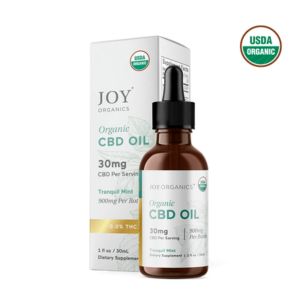
25% Off Coupon: HEALTHCANAL
If you want to enjoy the benefits of CBD for your lupus symptoms without the THC, Joy Organics has plenty of options for you to choose from.
- Four recipes all free from THC
- Made with USDA-certified organic ingredients
- Choose from three concentrations of CBD
- Maybe more expensive than other options
When shopping for CBD oil, it’s important to have options. Spruce CBD not only offers three different concentrations (450mg, 900mg, and 1,350mg) but they have three different flavors and an unflavored oil.
All four of these formulas are THC-free, but you can also try their full-spectrum Fresh Lime CBD oil tincture which may contain up to 0.3% THC by dry weight. All products are made with USDA Certified organic ingredients and each batch is third-party lab-tested for potency and purity. Plus, you get free shipping and a 30-day money-back guarantee.
Spruce CBD

15% Off Coupon: HEALTHCANAL
When you want the best CBD out there you can trust Spruce CBD. Their products are 100% natural, lab-grade, and made in the United States.
- Full-spectrum CBD (free from THC)
- Third-party lab tested for purity/potency
- Save 15% with a monthly subscription
- Fairly expensive compared to other options
- Limited variety of CBD products
If you’re looking for a high-quality CBD product, make sure to check out Spruce CBD. This company may not offer the same degree of variety some companies do, but their products are held to the highest standards for quality and purity. Spruce CBD oils are made from lab-grade full-spectrum CBD in organic, vegan, and gluten-free formulas. These products are 100% natural, free from pesticides, and low in THC (under 0.3% by dry weight).
When you order from Spruce CBD, you know you’re receiving a CBD product made in the USA and shipped from a sanitized US facility. Receive free shipping and a 15% discount on automatic monthly orders.
CBD Pure
If you’re new to CBD, it doesn’t hurt to choose a company that offers a generous money-back guarantee. CBDPure has your back for 90 days after purchase.
- Generous 90-day money-back guarantee
- Premium organic hemp CBD oil
- Affordable price, save on larger orders
- Limited variety of products
You don’t have to pay a fortune to use CBD and you should have the peace of mind of knowing your purchase is guaranteed if you’re not fully satisfied. CBD Pure checks off both of these boxes with its affordable pricing and a generous 90-day guarantee. Choose from three concentrations of organic hemp CBD: 300mg, 600mg, or 1,000mg. These oils have a natural hemp flavor and come in either 30ml or 60ml bottles.
Medterra
You shouldn’t have to pay a fortune to relieve inflammation and pain. Lupus symptoms can be a thing of the past with affordable CBD from Medterra.
- Affordable high-quality CBD oil
- Full and broad-spectrum options
- Products are made in the USA
- Some may be confused by full vs broad spectrum
Medterra offers a variety of full and broad-spectrum CBD oils so you can choose the one that is perfect for you. All of their CBD oils are made in the USA with non-GMO organically grown hemp. They are third-party tested for purity and potency, and everything comes with a 30-day money-back guarantee. If you want to fortify your body’s defenses against lupus, consider their CBD Immune Boost drops enriched with natural ingredients that support the immune system.
Plus CBD
When it comes to variety, PlusCBD has everything. From flavored and unflavored to sweetened and unsweetened, you’re sure to find a CBD product to suit your taste.
- Wide variety of flavors and formulas
- Pure hemp CBD, lab tested for purity
- Some recipes sweetened with monk fruit
- Made with hemp not grown in the USA
Taking CBD oil can be unpleasant if you don’t like the natural flavor of hemp oil. With PlusCBD, you can choose from a wide variety of unflavored and flavored options, including recipes sweetened with monk fruit extract. Choose from a wide range of concentrations including both broad-spectrum CBD and whole-plant extracts. They even offer raw CBD oil.
Using CBD As Treatment For Lupus
The Different Types Of Lupus
Lupus is an autoimmune disease. In a person who has lupus, the immune system, which normally protects the body against infection and foreign invaders, malfunctions. Instead of attacking outward threats, the immune system attacks the body’s own healthy tissues which can lead to inflammation, tissue damage, and even organ failure. Lupus can lead to serious health complications and, in some cases, can become life-threatening.
There are five recognized types of lupus:
- Systemic Lupus Erythematosus (SLE) – The most common form of lupus, SLE is also the most serious because it involves the entire body.
- Subacute Cutaneous Lupus – This form of lupus is limited to the skin and involves a widespread rash often worsened by sun exposure.
- Discoid Lupus – Also known as chronic cutaneous lupus, this form involves a specific scarring rash made up of circular-shaped lesions.
- Drug-Induced Lupus – Often a temporary form of lupus, this type is caused by certain medications including drugs to treat high blood pressure or rheumatoid arthritis.
- Neonatal Lupus – A rare form of lupus that affects infants of women with lupus.
The signs and symptoms of lupus vary from one person to another depending on the type and severity. In many cases, early symptoms include arthritis of the small joints (like the fingers and wrists) and a rash. Other symptoms may include fatigue, fevers, hair loss, swollen lymph nodes, abdominal pain, headache, dry mouth, and mood disorder. In many cases, the first clinical sign of lupus is an abnormal blood test result such as protein in the urine or an indication of kidney disease.
Individual lupus sufferers often have their own unique pattern of symptoms and flare-ups which may change over time. The diagnosis of lupus is generally based on laboratory tests.
What Causes Lupus?
The exact cause of lupus is unknown, as is the case for many autoimmune diseases. Researchers believe, however, that it may be linked to various hormonal, environmental, and genetic factors. Others believe factors such as stress and sunlight may be involved.
Though lupus can affect anyone, the newest cases of lupus are seen in women under the age of 45. Lupus also tends to affect more people of color, particularly people of African, Asian, and Latin descent. When lupus occurs in children, it usually develops after 15 years of age.
How Is Lupus Treated?
Because lupus is a complex condition, treatment varies. Depending on the patient’s symptoms and the organs involved, more than one therapy may be required to help manage the condition. Treatment requirements may change over time as well, depending on how the disease progresses. Many people with lupus experience a normal lifespan but may have some level of disability.
Here are some of the most common treatments for lupus:
- Non-steroidal anti-inflammatory drugs (NSAIDs)
- Corticosteroids
- Antimalarial drugs (like Hydroxychloroquine)
- Immunosuppressive drugs
- Biological agents
- Intravenous immunoglobulin
Unfortunately, some of these therapies result in adverse effects.[2] For this reason, the search for newer, more effective treatments with fewer side effects is ongoing.
Benefits Of CBD Oil For Lupus
Because pharmaceutical medications often come with side effects, some lupus patients seek alternative therapies to address symptoms including pain, fatigue, and inflammation.
In fact, a 2014 review revealed that as many as 50% of lupus patients[3] with SLE have utilized complementary and alternative treatments to manage their condition. Some of the therapies mentioned in the review include natural remedies, breathing exercises, meditation, and chiropractic treatment as well as dietary supplements. Some lupus patients may even use CBD.
Cannabidiol (CBD) is one of the major plant compounds[4] found in Cannabis. Though the benefits of CBD are still being studied, its effects have been linked primarily to its interaction with cannabinoid receptors in the body’s endocannabinoid system. The endocannabinoid system is a cell signaling system in the body that helps regulate function and maintain homeostasis. By binding to or interacting with certain receptors (primarily CB1 and CB2 receptors), CBD oil may offer pain-relieving and anti-inflammatory properties, among other benefits.
Though CBD oil has been tested for a wide variety of conditions, its effects are still being studied. Some studies]5] have shown that CBD oil may help reduce chronic pain by interacting with neurotransmitters and affecting endocannabinoid receptor activity to lower inflammation and reduce the perception of pain. Other studies[6] support the use of CBD for more serious conditions like epilepsy and even opioid addiction.
Does CBD Work For Lupus Treatment?
Research on CBD for lupus is extremely limited, so there is no scientific evidence to support CBD oil as an effective treatment option. That being said, taking CBD may help with certain symptoms such as chronic pain and inflammation. You should not take CBD without talking to your doctor first, however, because it can interact with other medications you may be taking.
Here are some of the ways in which CBD may help treat lupus symptoms:
Chronic Pain And Inflammation
Though lupus affects each patient differently, pain is a common symptom. According to the National Resource Center on Lupus, more than 90% of people with lupus will experience joint or muscle pain at some point over the course of their illness. In fact, more than half of those who develop lupus mention joint pain as their first symptom. When it comes to lupus pain, inflammation is certainly a contributing factor.
In a 2018 study of CBD use[7], pain was the most commonly cited reason for using CBD oils. Whether CBD oils are studied specifically for pain related to lupus, scientific support does exist for the use of CBD for pain and to reduce inflammation. A 2018 review[8] published in the Journal of Pain Research shows that CBD has significant analgesic effects compared to placebo.
Anxiety And Depression
Lupus is a chronic condition and, as is true for many autoimmune diseases, it often goes through periods of remission and flare-ups. Dealing with the disease may contribute to psychological disturbances such as anxiety and depression, not to mention the effects of the disease on the nervous system itself. One study showed that depression affects as many as 25% of lupus patients[9] and anxiety affects as many as 37%. Another study[10] confirms that several moods and anxiety disorders are more common in women with SLE compared to the general population.
In the study of CBD use[11]mentioned above, the second most commonly reported reason for taking CBD oil was anxiety. CBD has been shown to act on the brain’s receptors for serotonin,[12] the neurotransmitter linked to mood. As such, it has shown potential as a treatment for generalized anxiety disorder, panic disorder, PTSD, and other anxiety disorders. Studies using animal models have also shown CBD to exhibit antidepressant effects.[13]
Opioid Addiction
Because pain is a chronic issue for many lupus patients, some take prescription painkillers including opioids. A 2019 study[14] revealed that nearly one-third (31%) of lupus patients used prescription opioids compared to 8% of people without them. Of those using opioids, 68% had been taking them for longer than one year, and 22% were on two or more opioid medications.
When used as directed by a doctor opioid medications can help control pain but, due to their high risk for dependence, they are generally recommended for short-term use. Opioid addiction is a growing epidemic[15] in the United States and it is a problem that can be difficult to treat. Some studies[16] indicate that CBD has potential as a therapeutic intervention against opioid addiction.
CBD Dosage For Lupus
Though CBD products may help relieve joint pain, inflammation, and other lupus symptoms, it’s important to remember that CBD has not been widely tested as a lupus treatment. When it comes to CBD for lupus, the effective dosage may vary from one person to another. In fact, there is no standard dosage for cannabis, so you may need to try different doses anyway.
If you’re just getting started you may want to start with a lower concentration and work your way up to a higher dose once you see how your body reacts. Keep an eye out for side effects[17] like drowsiness, diarrhea, or changes in appetite, and be sure to double-check with your doctor if you’re taking other medications.
How To Choose The Right CBD Oil For Lupus
If you’re going to use CBD, it’s important to choose a high-quality product. Do your research to find a trustworthy brand and verify the source of their cannabis. Keep in mind that some companies use a CBD isolate while others use the whole cannabis plant – this makes a difference when it comes to THC content. When it comes to CBD, THC can legally comprise up to 0.3% of the dry weight of the product.
In addition to shopping for a reputable brand, make sure to check the concentration of the CBD products you’re considering. Most CBD oil is sold in 30ml glass bottles, but some companies offer larger 60ml bottles. The concentration will impact the dosing recommendations – talk to your doctor if you’re not sure how much you should be taking. Verify as well that the product has been tested by an independent lab for safety, purity, and potency.
Frequently Asked Question
Cannabidiol (CBD) is a cannabinoid compound found in cannabis that may help relieve pain and reduce inflammation. CBD products have not been widely tested for lupus but some patients may experience pain relief or anti-inflammatory benefits.
The cannabis plant is used for both CBD oil and medical marijuana, it’s just a matter of the variety. Some CBD oil contains THC, but it can legally only contain up to 0.3% by dry weight.
There is no standard dosage of CBD for lupus or any other application. Follow the dosing recommendations on the product you choose and refer to your doctor’s advice.
+ 17 sources
Health Canal avoids using tertiary references. We have strict sourcing guidelines and rely on peer-reviewed studies, academic researches from medical associations and institutions. To ensure the accuracy of articles in Health Canal, you can read more about the editorial process here
- Fraguas-Sánchez, A.I. and Torres-Suárez, A.I. (2018). Medical Use of Cannabinoids. Drugs, [online] 78(16), pp.1665–1703. Available at: https://link.springer.com/article/10.1007/s40265-018-0996-1.
- Yasuda, S. (2019). Emerging targets for the treatment of lupus erythematosus: There is no royal road to treating lupus. Modern Rheumatology, [online] 29(1), pp.60–69. Available at: https://pubmed.ncbi.nlm.nih.gov/29947283/.
- Greco, C.M., Nakajima, C. and Manzi, S. (2013). Updated Review of Complementary and Alternative Medicine Treatments for Systemic Lupus Erythematosus. Current Rheumatology Reports, [online] 15(11). Available at: https://www.ncbi.nlm.nih.gov/pmc/articles/PMC3898893/.
- Atakan, Z. (2012). Cannabis, a complex plant: different compounds and different effects on individuals. Therapeutic Advances in Psychopharmacology, [online] 2(6), pp.241–254. Available at: https://www.ncbi.nlm.nih.gov/pmc/articles/PMC3736954/.
- Darkovska-Serafimovska, M., Serafimovska, T., Arsova-Sarafinovska, Z., Stefanoski, S., Keskovski, Z. and Balkanov, T. (2018). Pharmacotherapeutic considerations for use of cannabinoids to relieve pain in patients with malignant diseases. Journal of Pain Research, [online] Volume 11, pp.837–842. Available at: https://www.ncbi.nlm.nih.gov/pmc/articles/PMC5922297/.
- VanDolah, H.J., Bauer, B.A. and Mauck, K.F. (2019). Clinicians’ Guide to Cannabidiol and Hemp Oils. Mayo Clinic Proceedings, [online] 94(9), pp.1840–1851. Available at: https://www.sciencedirect.com/science/article/pii/S0025619619300072.
- Corroon, J. and Phillips, J.A. (2018). A Cross-Sectional Study of Cannabidiol Users. Cannabis and Cannabinoid Research, [online] 3(1), pp.152–161. Available at: https://www.ncbi.nlm.nih.gov/pmc/articles/PMC6043845/.
- Darkovska-Serafimovska, M., Serafimovska, T., Arsova-Sarafinovska, Z., Stefanoski, S., Keskovski, Z. and Balkanov, T. (2018). Pharmacotherapeutic considerations for use of cannabinoids to relieve pain in patients with malignant diseases. Journal of Pain Research, [online] Volume 11, pp.837–842. Available at: https://www.ncbi.nlm.nih.gov/pmc/articles/PMC5922297/.
- Figueiredo-Braga, M., Cornaby, C., Cortez, A., Bernardes, M., Terroso, G., Figueiredo, M., Mesquita, C.D.S., Costa, L. and Poole, B.D. (2018). Depression and anxiety in systemic lupus erythematosus. Medicine, [online] 97(28), p.e11376. Available at: https://www.ncbi.nlm.nih.gov/pmc/articles/PMC6076116/#:~:text=Psychological%20manifestations%20such%20as%20depression,symptoms%20to%20manifest%20in%20lupus. ].
- Bachen, E.A., Chesney, M.A. and Criswell, L.A. (2009). Prevalence of mood and anxiety disorders in women with systemic lupus erythematosus. Arthritis & Rheumatism, [online] 61(6), pp.822–829. Available at: https://www.ncbi.nlm.nih.gov/pmc/articles/PMC2763591/.
- Corroon, J. and Phillips, J.A. (2018). A Cross-Sectional Study of Cannabidiol Users. Cannabis and Cannabinoid Research, [online] 3(1), pp.152–161. Available at: https://www.ncbi.nlm.nih.gov/pmc/articles/PMC6043845/.
- Blessing, E.M., Steenkamp, M.M., Manzanares, J. and Marmar, C.R. (2015). Cannabidiol as a Potential Treatment for Anxiety Disorders. Neurotherapeutics, [online] 12(4), pp.825–836. Available at: https://www.ncbi.nlm.nih.gov/pmc/articles/PMC4604171/.
- Schier, A., Ribeiro, N., Coutinho, D., Machado, S., Arias-Carrion, O., Crippa, J., Zuardi, A., Nardi, A. and Silva, A. (2014). Antidepressant-Like and Anxiolytic-Like Effects of Cannabidiol: A Chemical Compound of Cannabis sativa. CNS & Neurological Disorders – Drug Targets, [online] 13(6), pp.953–960. Available at: https://pubmed.ncbi.nlm.nih.gov/24923339/.
- Somers, E.C., Lee, J., Hassett, A.L., Zick, S.M., Harlow, S.D., Helmick, C.G., Barbour, K.E., Gordon, C., Brummett, C.M., Minhas, D., Padda, A., Wang, L., McCune, W.J. and Marder, W. (2019). Prescription Opioid Use in Patients With and Without Systemic Lupus Erythematosus — Michigan Lupus Epidemiology and Surveillance Program, 2014–2015. MMWR. Morbidity and Mortality Weekly Report, [online] 68(38), pp.819–824. Available at: https://pubmed.ncbi.nlm.nih.gov/31557148/.
- Wang, S.-C., Chen, Y.-C., Lee, C.-H. and Cheng, C.-M. (2019). Opioid Addiction, Genetic Susceptibility, and Medical Treatments: A Review. International Journal of Molecular Sciences, [online] 20(17), p.4294. Available at: https://www.ncbi.nlm.nih.gov/pmc/articles/PMC6747085/.
- Hurd, Y.L., Yoon, M., Manini, A.F., Hernandez, S., Olmedo, R., Ostman, M. and Jutras-Aswad, D. (2015). Early Phase in the Development of Cannabidiol as a Treatment for Addiction: Opioid Relapse Takes Initial Center Stage. Neurotherapeutics, [online] 12(4), pp.807–815. Available at: https://www.ncbi.nlm.nih.gov/pmc/articles/PMC4604178/.
- Iffland, K. and Grotenhermen, F. (2017). An Update on Safety and Side Effects of Cannabidiol: A Review of Clinical Data and Relevant Animal Studies. Cannabis and Cannabinoid Research, [online] 2(1), pp.139–154. Available at: https://www.ncbi.nlm.nih.gov/pmc/articles/PMC5569602/.

